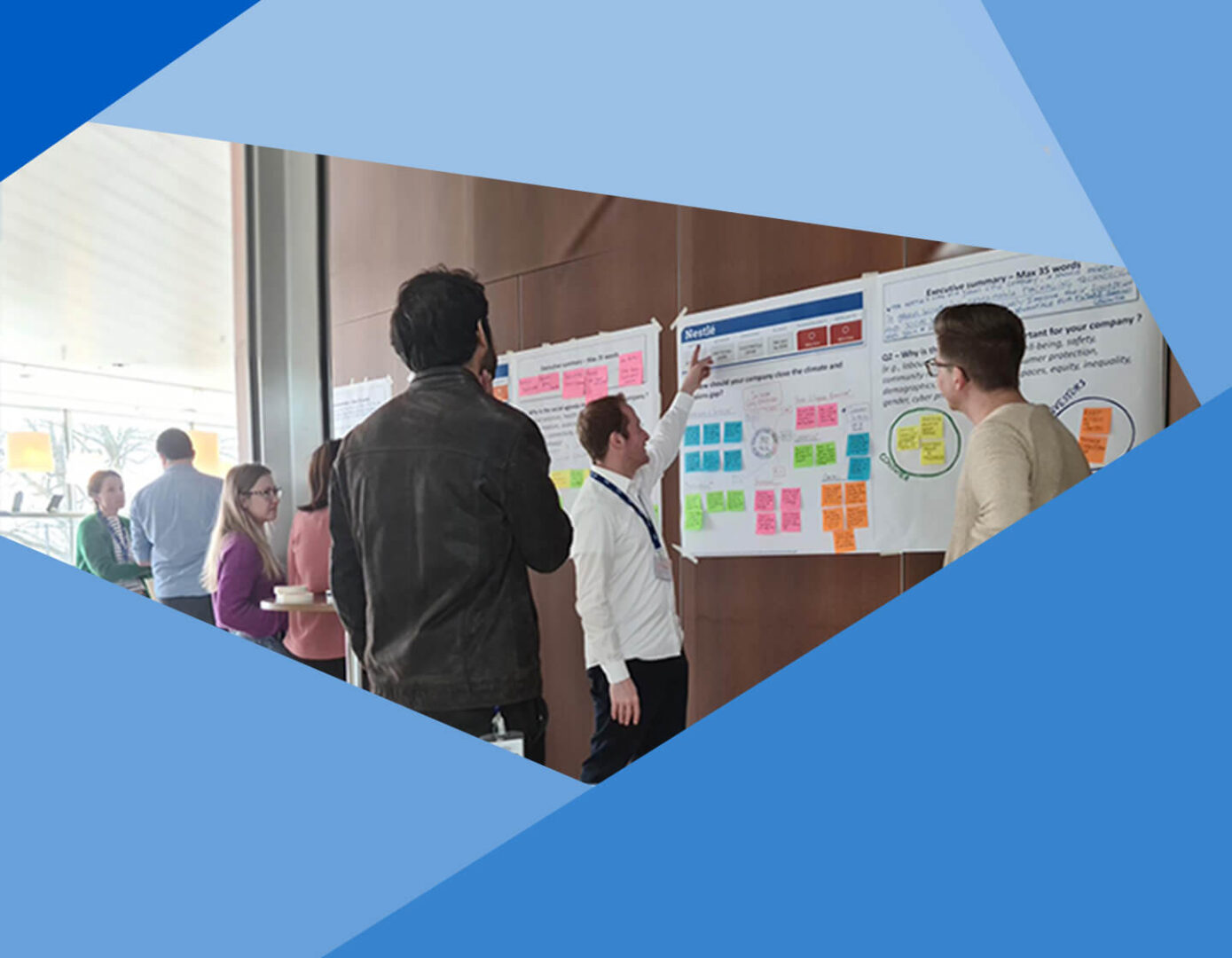
What kind of sustainability challenges do the world’s top 20 companies face? And to what extent are organizations living up to their promises when it comes to corporate climate responsibility?
On 21 and 22 March, the MBA class of 2022 got a chance to discuss these questions during a specially designed Science Behind Sustainability initiative, and get to grips with the important role played by natural, social, and economic sciences.
The program included presentations from:
- Peter Bakker, CEO and President, WBCSD
- James Gomme, Director of Equity Action, WBCSD
- Karl Schmedders, Professor of Finance, IMD
- Julia Steinberger, Professor of Ecological Economics, University of Lausanne (UNIL).
- Samuel Jaccard, Associate Professor, Institute of Geological Sciences, University of Lausanne (UNIL).
“We’ve been learning about sustainability since the start of our MBA,” said Maria Barragan, a participant from Colombia who previously worked as an operations field engineer in the oil industry. “The past two days have been a chance to get more technical, and understand what Scope 1, 2 and 3 emissions are, as well as concepts like in-setting.”
The highlight of the event was a poster session where MBAs showcased their exploratory work on companies ranked in the 2022 Corporate Climate Responsibility Monitor, which assesses the “transparency and integrity” of companies’ climate pledges and allows them to be challenged on their methodologies and the way they report climate-related indicators.
Specifically, the MBAs tried to answer two burning questions in light of the report:
- How should each company close the climate and emissions gaps flagged by the Corporate Climate Responsibility Monitor 2022 report?
- Why is the social agenda important for these companies?
The teams then had to pitch their analysis and proposals to IMD professors in a two-minute presentation.
Among the winning pitches was the team assessing professional services business Accenture, who concluded that the company was putting too much emphasis on nature-based solutions such as tree-planting to offset its emissions. The team proposed various measures, including working with external auditors, linking their KPIs with sustainability, and introducing hybrid working to limit the impact from travel which accounts for almost a third of their emissions.
Professor Knut Haanaes praised participants for getting to the essence of each company’s sustainability story in such a short period of time.
A further highlight from the initiative was a presentation by Olivier Delarue, a former Senior Adviser at UNHCR, on “A day in the life of a refugee”, which underscored the power of storytelling. MBAs were then challenged to think how to create better stories around the climate crisis.
The next special initiative in the revamped MBA program will be a one-week innovation lab in May focusing on developing innovative solutions to sustainability problems.


